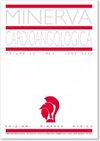氢氯噻嗪治疗对导管消融后房颤早期复发的影响?
Q3 Medicine
引用次数: 0
摘要
背景:低钾血症与心电图改变和去极化后介导的心律失常有关。然而,低钾血症与心房颤动(AF)之间的关系尚未得到很好的研究。多项研究表明,氢氯噻嗪(HCT)利尿剂治疗与低钾血症有关。我们的目的是在3个月的随访中确定HCT治疗是否与射频(RF)导管消融后AF的早期复发有关。方法:我们对内部房颤消融登记进行了回顾性登记分析,包括807例连续接受射频消融治疗症状性房颤的患者。倾向评分匹配用于156例HCT治疗患者和156例对照。此外,我们在初始人群(n=807)的基线血清钾(K)浓度的第一个和第四个四分位数之间进行了倾向评分匹配。结果HCT组和对照组的基线平均钾水平差异虽小,但有统计学意义(分别为4.03 mmol/l和4.19 mmol/l, p= 0.001)。与倾向评分匹配的对照组相比,HCT组房颤短期复发率无差异(41.0% (n=64) vs 45.5% (n=71), p=0.424)。在基线血钾值的第一和第四个四分位数的比较中,两组在消融后3个月的随访中房颤复发率无差异(38.2% (n=63) vs 37.0% (n=61), p=0.820)。结论:与倾向匹配的对照组相比,HCT治疗的患者消融后房颤短期复发无差异。本文章由计算机程序翻译,如有差异,请以英文原文为准。
Hydrochlorothiazide therapy: impact on early recurrence of atrial fibrillation after catheter ablation?
BACKGROUND
Hypokalemia has been linked to electrocardiogram changes and afterdepolarization-mediated arrhythmias. However, the association betweeen hypokalemia and atrial fibrillation (AF) has not been well studied. Hydrochlorothiazide (HCT) diuretic therapy was shown to be associated with hypokalemia in multiple studies. We aimed to determine whether HCT therapy is associated with early recurrence of AF after radiofrequency (RF) catheter ablation during a 3 month follow-up.
METHODS
We performed a retrospective registry analysis of our internal AF ablation registry, containing 807 consecutive patients that underwent RF ablation for symptomatic AF. Propensity score matching was used to match 156 patients on HCT therapy with 156 controls. Furthermore, we performed propensity score matching between the first and the fourth quartile of baseline serum potassium (K) concentrations in the initial population (n=807).
RESULTS
We observed a small but statistically significant difference in baseline mean potassium levels between the HCT group and the control group (4.03 mmol/l vs. 4.19 mmol/l respectively, p= 0.001). There was no difference in short term recurrence of atrial fibrillation in the HCT group compared to the propensity score matched control group (41.0% (n=64) vs. 45.5% (n=71), p=0.424). In the comparison between the first and the fourth quartile of baseline serum potassium values, no difference in AF recurrence (38.2% (n=63) vs. 37.0% (n=61), p=0.820) during a 3 month follow up after ablation was observed between both groups.
CONCLUSIONS
Patients on HCT therapy showed no difference in short term recurrence of AF after ablation compared to propensity matched controls.
求助全文
通过发布文献求助,成功后即可免费获取论文全文。
去求助
来源期刊

Minerva cardioangiologica
CARDIAC & CARDIOVASCULAR SYSTEMS-
CiteScore
1.60
自引率
0.00%
发文量
0
审稿时长
>12 weeks
期刊介绍:
A Journal on Heart and Vascular Diseases.
 求助内容:
求助内容: 应助结果提醒方式:
应助结果提醒方式:


